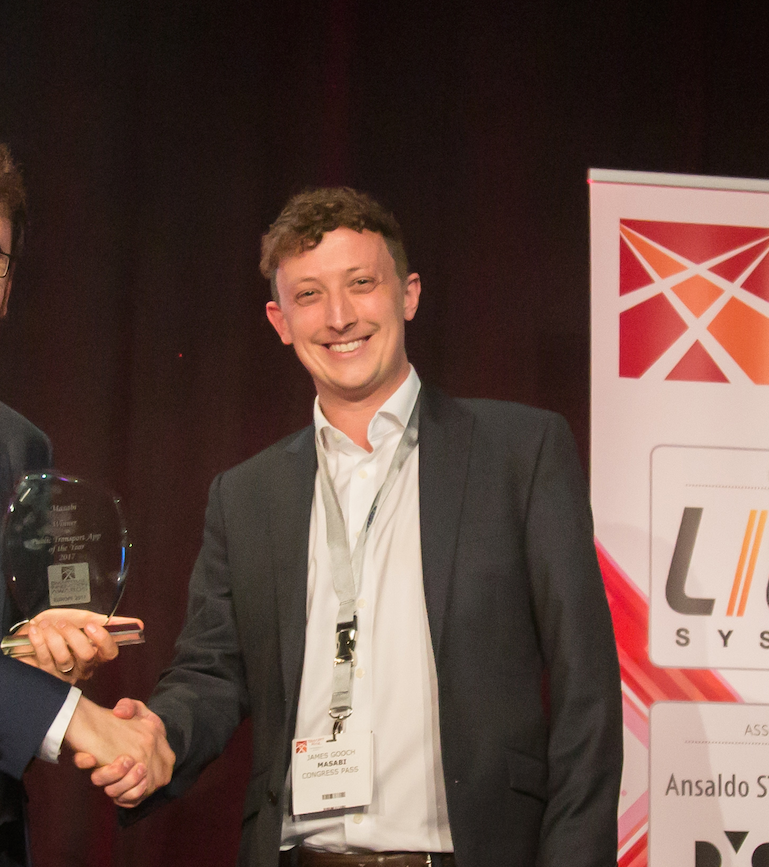Public transport agencies and authorities have long struggled with delivering fare collection systems on time and on budget. Custom-built, bespoke fare collection solutions have often led to delays, cost overruns, and cancelled projects. But there is a new model that agencies are turning to: SaaS fare collection.
SaaS platforms like Masabi’s Justride are changing the game. By delivering a proven, pre-integrated, account-based fare collection platform at scale, agencies are no longer trapped in the legacy delivery loop. This blog explores why the traditional approach has failed so often and how SaaS offers a better way forward.
The History of Bespoke Failure
For decades, fare collection projects followed the same pattern. Long procurement cycles, years of development, frequent delays and cost overruns, and outdated tech by the time of launch. Many projects were even cancelled after millions had already been spent. Custom development models are simply too risky and too slow for today’s rapidly changing transit landscape.
Part of the issue lies in how legacy vendors have to manage the project. With bespoke systems, every project is essentially a new build - even if some components are shared. Each project has its own code variations, unique requirements, and dedicated teams. This complexity often leads to the creation of “A, B, and C teams.” The A team is typically assigned to a high-profile project, while the B and C teams—often with fewer resources or less experience - handle others. When one project encounters issues, resources are reallocated from other teams, but because each bespoke system is different, shifting staff doesn’t guarantee effective support. Institutional knowledge is not transferable, and onboarding new team members takes time. As a result, it becomes extremely difficult to surge resources or maintain momentum across projects.
This siloed, resource-constrained approach makes it nearly impossible to deliver multiple complex projects in parallel without compromise. And in a world where public expectations and technology are advancing rapidly, that model simply no longer works.
Trend: SaaS Platforms to Solve the Delivery Problem
SaaS platforms remove the need for bespoke builds. Agencies get a proven platform used by hundreds of others. There’s no custom codebase at it's core or ground-up development or hosting. Instead, configuration replaces complexity.
Masabi’s Justride platform supports Account-Based Ticketing (ABT), open payments, mobile and smart cards, fare capping, and more. It’s modular, pre-integrated, and already signed up by over 200 agencies. That means faster launches, predictable costs, and a platform that evolves continuously with agency and authority needs.
What Makes Masabi Different?
While legacy vendors are tied to custom projects, Masabi operates differently. Justride is a single global SaaS platform processing billions in fare revenue annually. Every agency gets a configured version of the same platform - backed by repeatable delivery frameworks, reusable integrations, and a global team trained on a single system.
In 2024 alone, we delivered 43 major project upgrades in parallel. Highlights include:
- Madison Metro Transit: Full ABT with mobile, smartcards, stored value and fare capping, delivered in under nine months.
- Los Angeles World Airports (LAWA): A complete open payments implementation at one of the busiest travel hubs in just 18 weeks.
- Los Angeles Metro: Event barcode ticketing delivered in just 14 days.
And in 2025 Masabi helped Madison Metro launch open payments in 7 months:
SaaS = Scalable, Reliable Delivery
Masabi’s SaaS model is designed for scalability. Unlike legacy vendors who rely on separate codebases, builds and siloed teams, we operate with a single platform and delivery model. Every project benefits from what came before, and resources can be shifted as needed without compromising quality.
That means no “A, B, or C” teams—just a global team trained on a shared approach and platform. Agencies get the best team, every time.
Helping Agencies Shift to ABT and Open Payments
More and more agencies and authorities are moving away from a reliance on proprietary systems and toward modern, account-based models. With Masabi, they’re rolling out mobile, contactless, and smartcard payments faster than ever before. They’re simplifying fare structures, enabling fare capping, and integrating with partners and retail networks - without giving up control over pricing, data and policy.
And they’re doing it with a platform designed to evolve alongside them.
The Masabi Delivery Model
We’ve invested heavily in the people, processes, and partnerships to deliver multiple projects fast and reliably. Our agile delivery teams work hand-in-hand with product, account management, and support to ensure every implementation launches smoothly and scales sustainably. Training, onboarding, and integration processes are designed to maximize adoption and minimize risk.
By utilizing advanced APIs and SDKs to integrate with new or existins systems, configuring over building with cloud-native infrastructure, combined with tried and trusted 'A-team' of project managers and supporting services, we’ve cracked the code on delivering at scale - without compromising quality.
Conclusion: A Better Way to Deliver Fare Collection
The legacy approach to fare collection delivery is broken. SaaS platforms like Masabi’s Justride are rewriting the rulebook, delivering modern, modular systems on time, in parallel, and at scale.
For agencies seeking to modernize fare collection without falling into the traps of the past, the message is clear: Don’t build. Configure. Don’t wait. Launch.
Masabi is ready to help you get there – fast, reliably, and with confidence.


